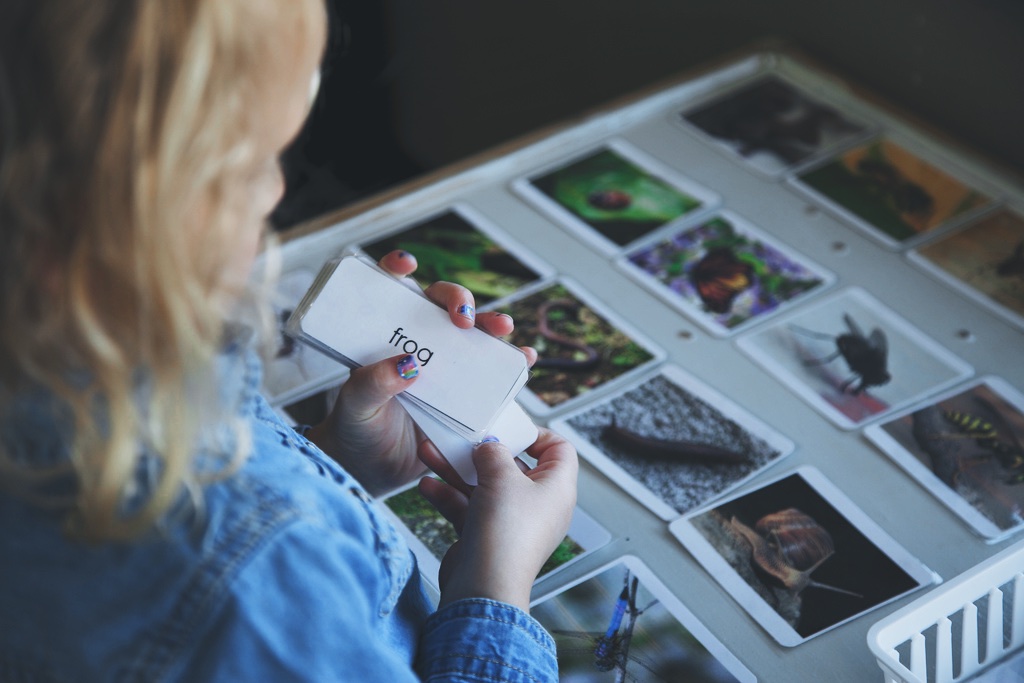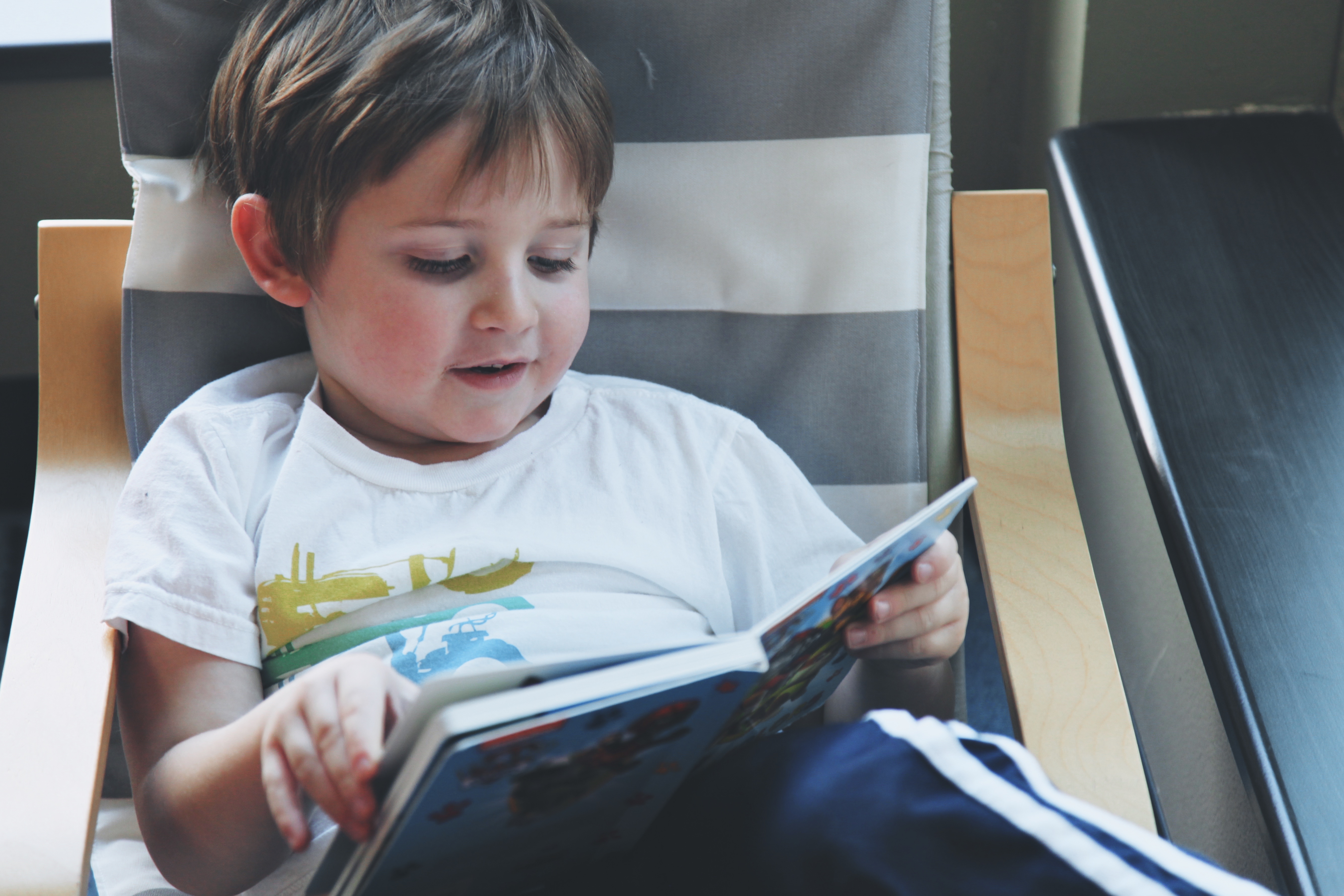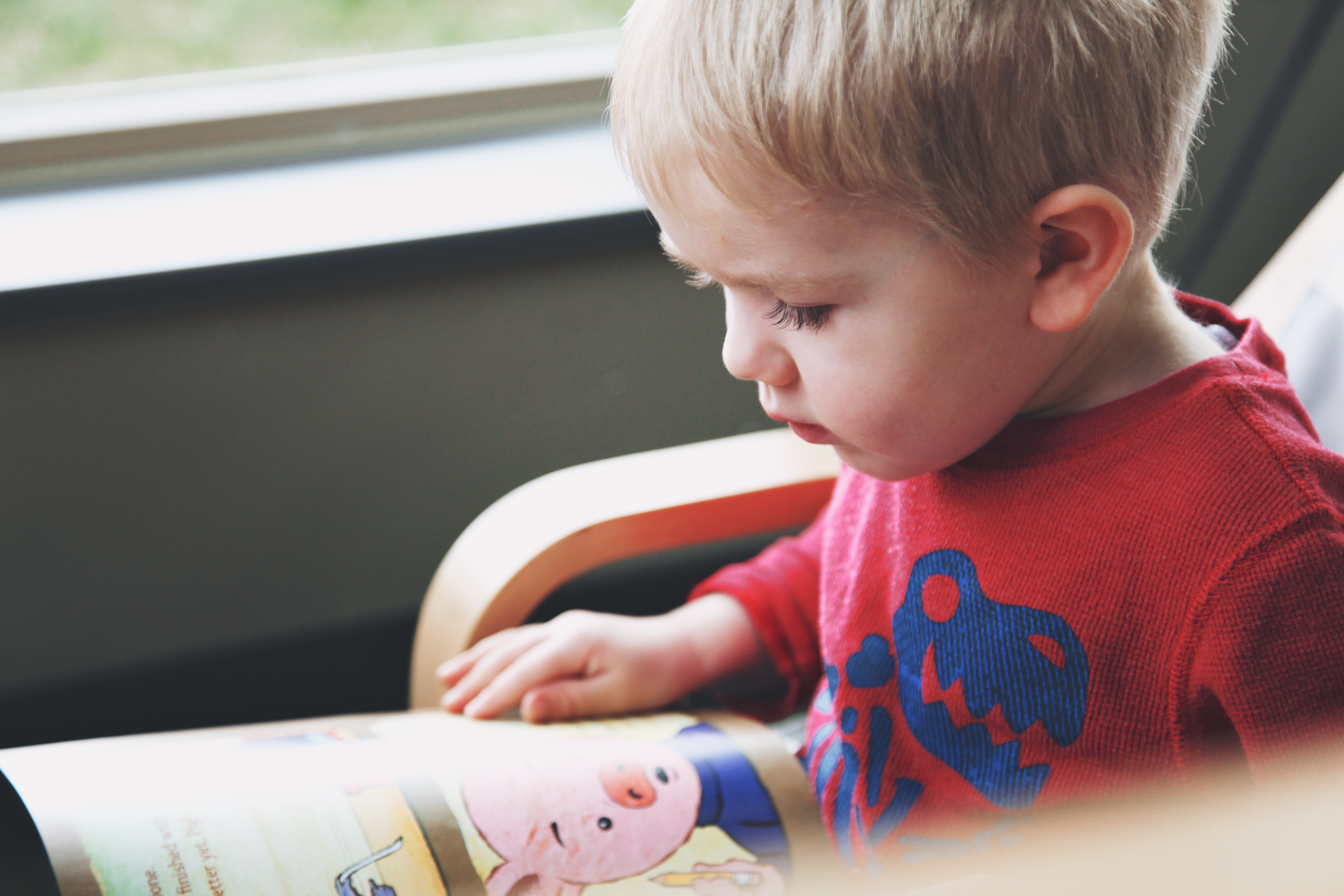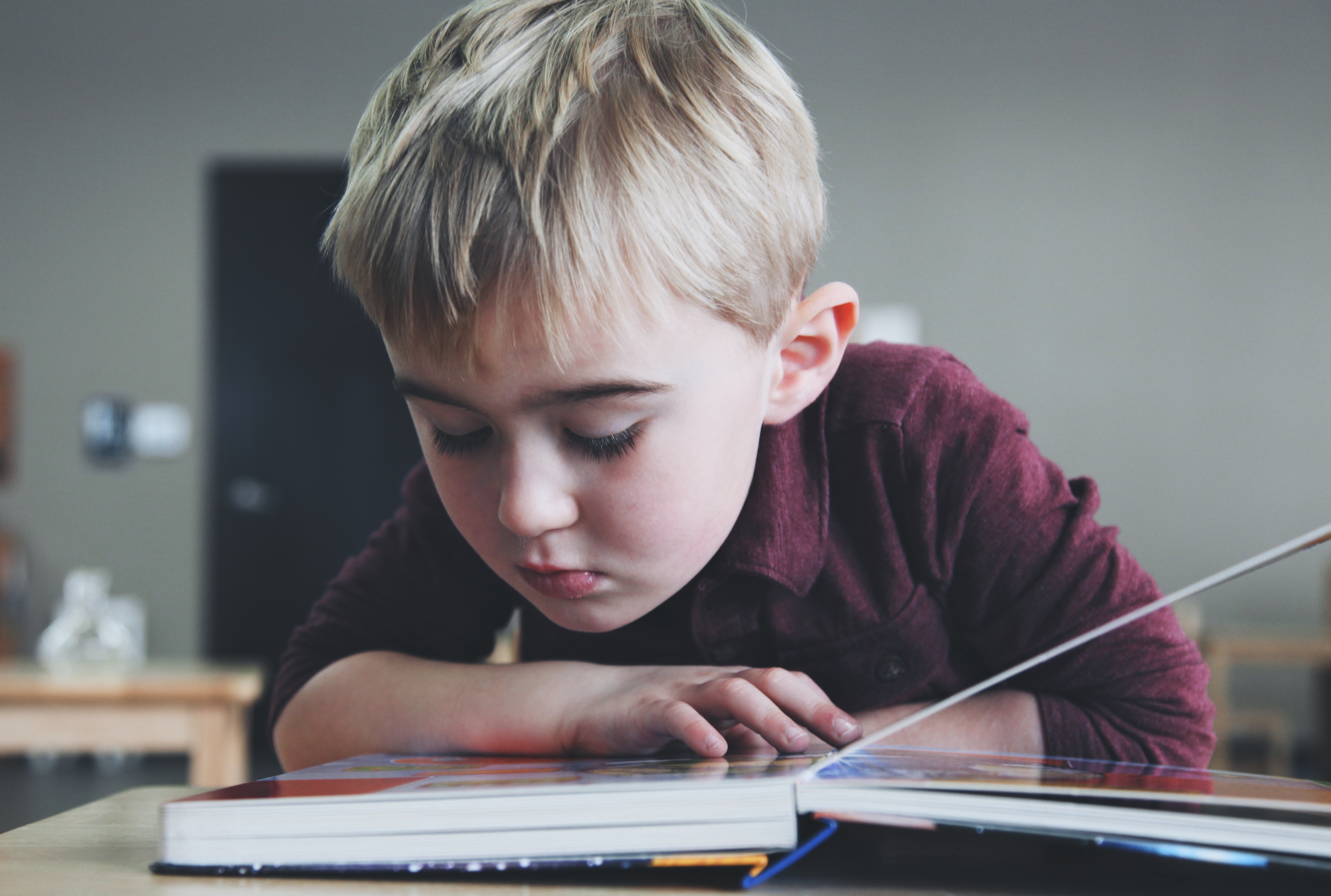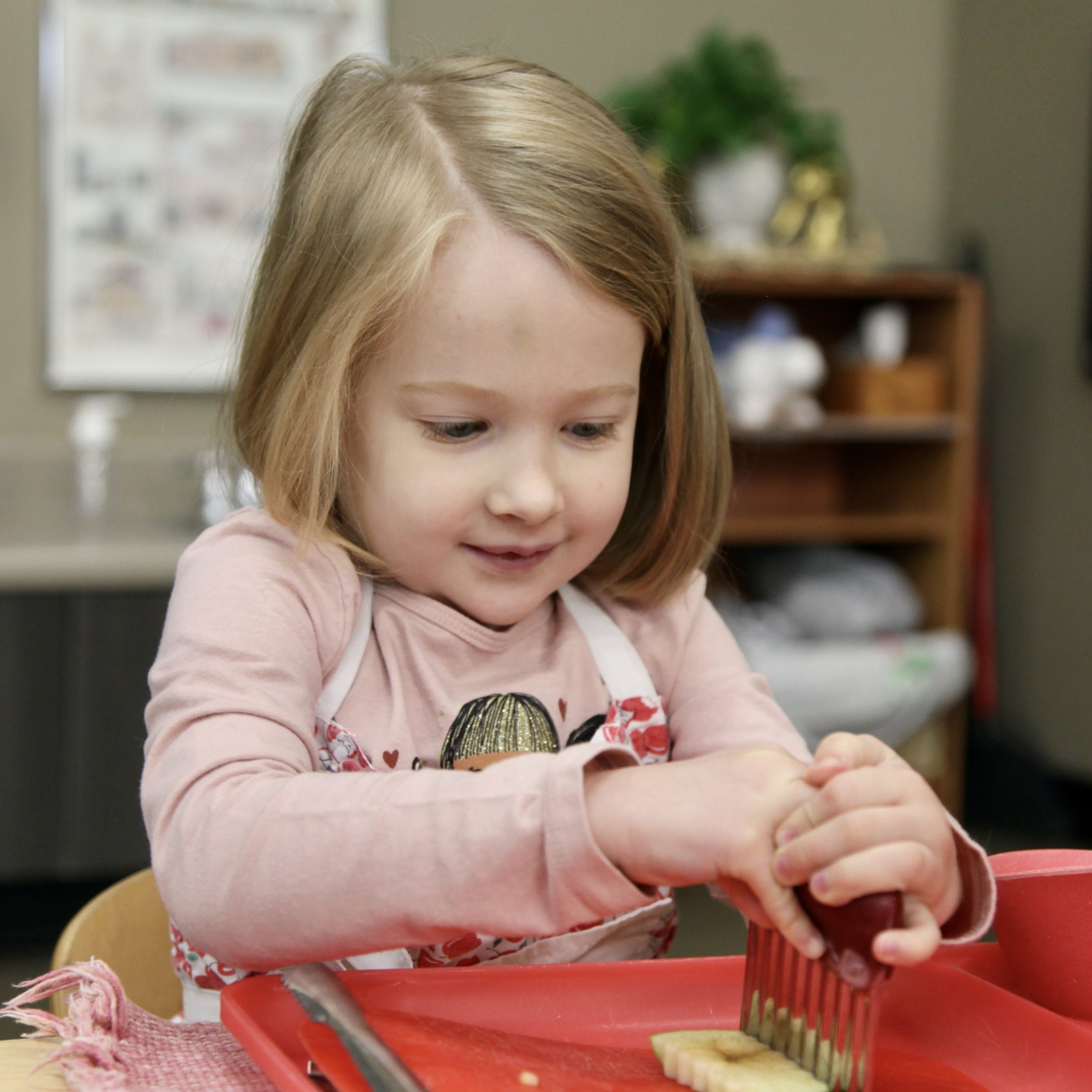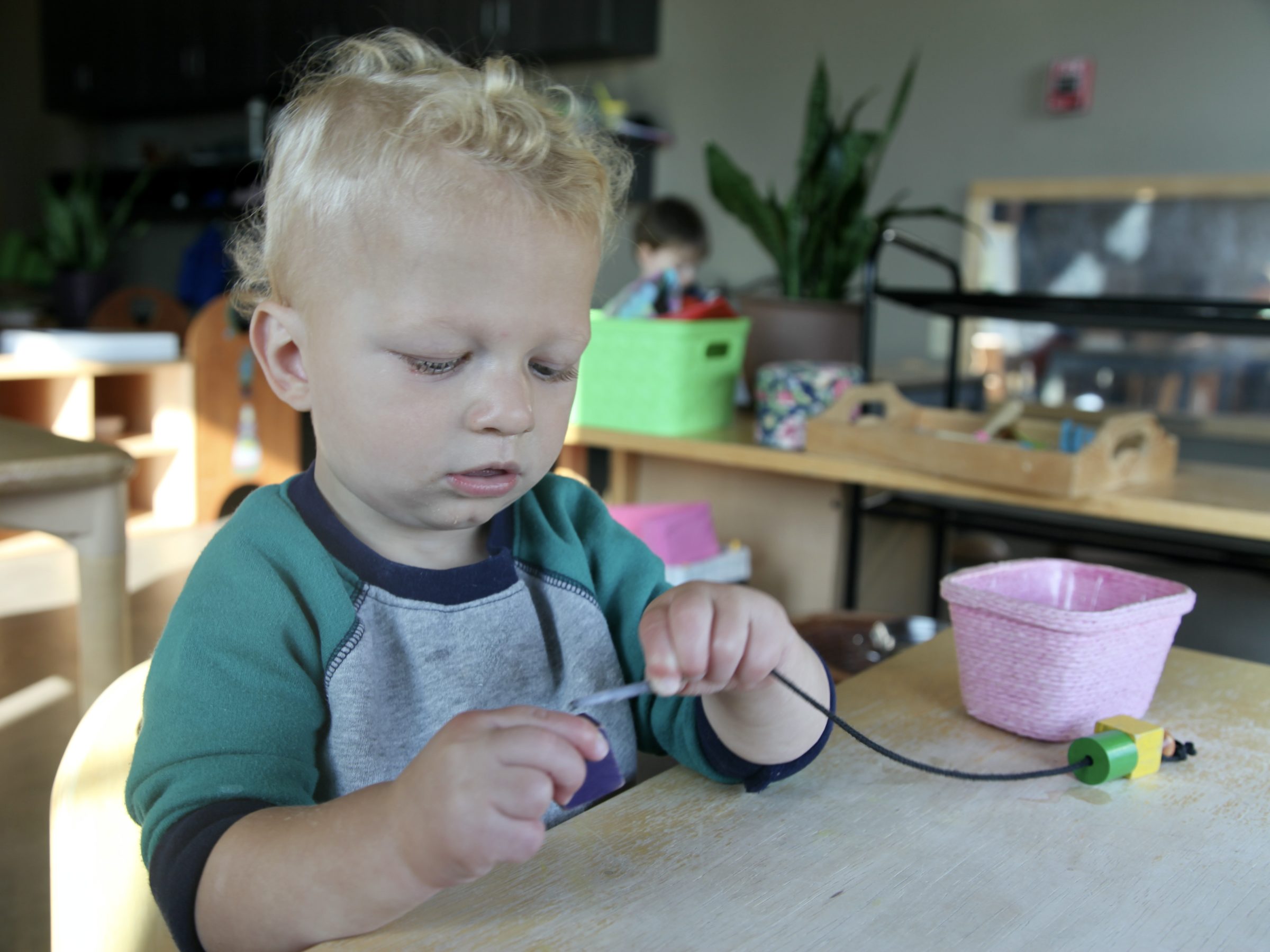Teaching Your Child to Read
Thoughts & Reflections
Reading is huge. It’s such a milestone, like first words, like losing a tooth, like riding a bike. Much like those momentous occasions, even like the last few days before your baby enters the world, parents wonder, am I doing this right? Could I, should I be doing more? Less? Different?
And yet, all of a sudden, it happens. Your child points and names an object. The tooth just pops out. He’s up and off riding down the street. No stopping him now!
Reading is a bit like that. The surface is still, but things are definitely happening. They are, right? Could I help the water boil just a bit faster? The child down the street/older sibling/someone somewhere was already reading by now. The internet says I’m not doing enough to help my child read. She’s behind. Facebook just bragged that every child ever was reading by now and if my child isn’t, I’m a failure as a parent.
Reading is not academic. Well it is, but not solely. Not even primarily. Reading is life. Reading is all day, every day. We read without even knowing it. You cannot look at words without reading them. Once the switch flips, it stays that way.
Reading is so much more than letters. It is meaning, culture, expression. The printing press changed the world. So what can parents do to help children learn to read?
You probably are already doing it.
A huge part of learning to do something is desire. Learning to talk comes from wanting to express, to be in relationship with these people, when your needs outweigh your gestures.
“There are so many ways you are supporting your child’s path to literacy that you might not even recognize.”
If a child comes from a home where literacy is a priority, where adults are seen reading, where the child is read to, independent reading follows.
Reading aloud to a child helps to develop a strong emotional connection with reading. A child associates positive feelings and memories with literacy. When they struggle with learning to read, and so many good things are paired with a struggle, the positive memories surface, and help to ebb the frustration of not being an expert yet.
Can you integrate reading aloud into your routine? Perhaps a book before bed, or during bath time? Even books without words help prepare a child for literacy, since there is often a beautifully depicted clear storyline to follow. Can your child recall a familiar tale just from looking at the pictures? Very young children love repetition, so try not to get discouraged if they want to read the same story for the zillionth time.
Reading can be a soothing way to end the day, a chance for one more snuggle, for a wiggly body to settle down and get cozy. Turn off the overhead light and find a nice bedside lamp. Can you display your child’s books on a small shelf? Is there a special space to keep library books, so they’re sure to make their way home again? Having five to ten books out is a nice way to have a selection available without being overwhelming. The majority can be kept elsewhere, and rotated based on interest.
Children want to be just like you. You are their whole world. Think about your heroes; don’t you want to emulate them in some way? If your child sees you reading, there is a higher likelihood that they will want to read, and it will be a lifelong companion.
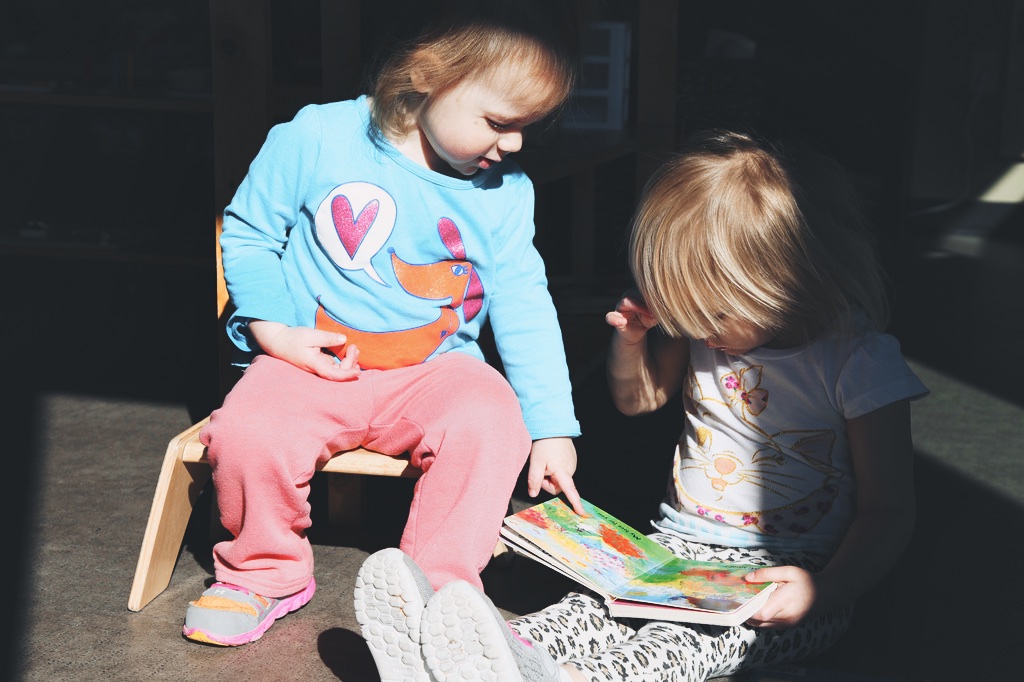
This can be tricky in our digital world. Most people read primarily using a tablet. You have an entire library at your fingertips, even at 11pm or on vacation, when you might not be able to visit the library. If you can, try and find a way to read a paper book in front of your child. Go to the library together and browse the stacks. Pick out a few, mentioning, “Hmmm, this looks interesting.” Reading is a fantastic form of entertainment.
Particularly when your child is beginning to show an interest in reading, try to read things aloud — street signs, menus, signs at the grocery store. This can highlight how frequently reading is used in everyday life, as well as providing opportunities for your emerging reader to make connections. Once they’re looking at words, your child might surprise herself, and you, by what she is able to read. That says, potato!
There are so many ways you are supporting your child’s path to literacy that you might not even recognize. Don’t undermine the huge work you’re doing at home, just by reading with and around your child. If your child wants to read, learning the letters is the easy part.
Written by:
Charlotte Snyder
